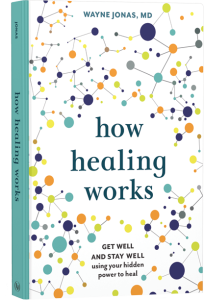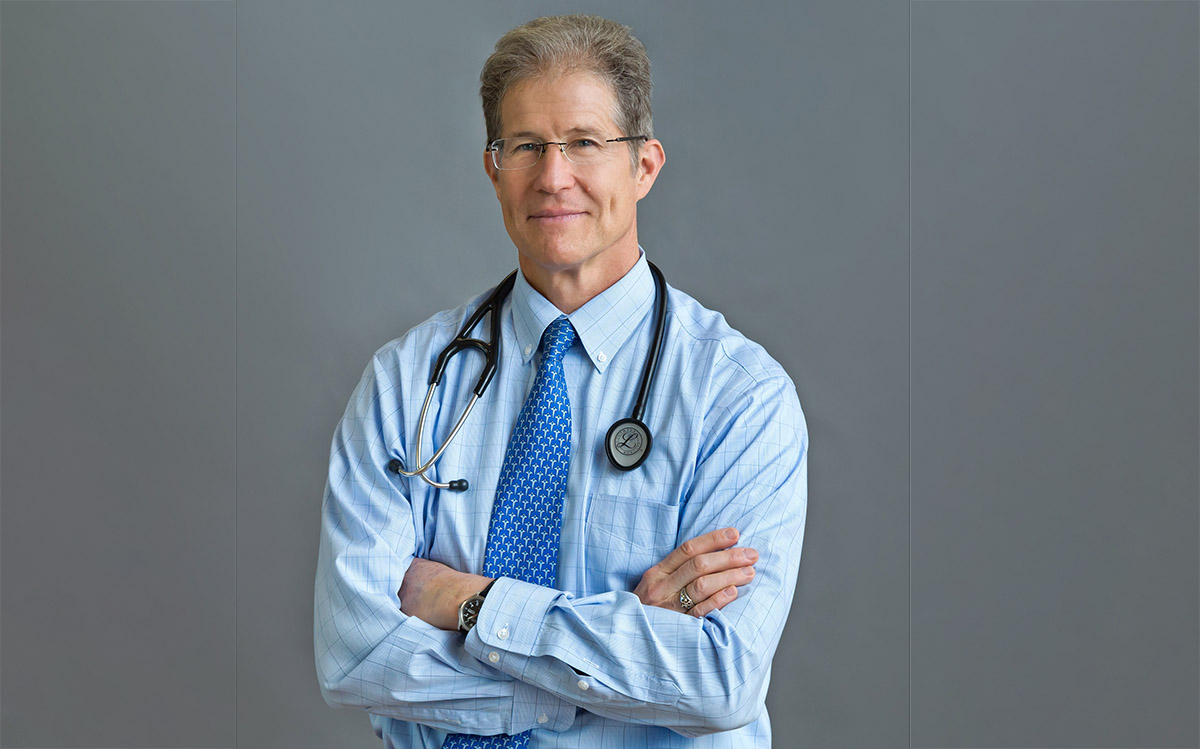“I am too young to have all this pain and anxiety, doc. I used to be healthy. I was deployed to Afghanistan twice and could keep up with any of them. What is wrong?”
That was the opening dialogue during my first visit with Deborah Sample, a medically retired Army sergeant I saw at the clinic for her chronic pain. She had come to the Optimal Healing Environments (OHE) clinic in a military hospital seeking “integrative medicine.” She had already seen just about everyone else—pain specialists, psychologists, physical therapists, a surgeon, acupuncturist, sports doctor. She had seen most of them several times and was on seven medications and several self-administered supplements. “I just want to be well so I can enjoy caring for my children and husband,” she finally said to my questions about what she was hoping for in life. “What matters most in your life?” I had asked. No one had ever asked her that before.
Gradually, over the next hour she described a life full of stress, anxiety, poor sleep, and anger. She had three active kids, but one son had mental illness and required extensive help. Her husband wanted to move to a less expensive area, away from the city. But the medical care she and her son needed would be hard to get there, and the friends and volunteer work she did would also not be there. They needed someone to help them work through these issues, but there were mostly handled by avoiding the discussion.
Although her chief complaint in the medical record detailed “chronic pain,” she told me that the thing she needed most was sleep. Each night she took a medication to “knock her out.”
“I can’t go to sleep without the drug,” she said. “My mind is racing and thinking of all the troubles I have and trying to find some peace.” She woke up tired.
What Deborah needed was peace of mind, less pain, and more happiness. She needed wellbeing, a diagnosis I couldn’t find in the medical record coding. The clinic didn’t provide or pay for wellbeing interventions.
Deborah and her physicians are not alone. Every day, tens of thousands of patients and their clinicians share the same dilemma. They come in with pain, anxiety, depression, substance use disorder, “diseases of despair,” and chronic conditions caused by stress, poor diet and activity, lack of sleep or social support. They get high blood pressure, obesity, diabetes, and eventually heart disease or cancer when the main underlying causes of these conditions persists for years without being addressed. They lose their health because they cannot tap into their inherent healing capacity. No one has helped them cultivate the mindset and behaviors that would keep them well or that would foster their happiness and wellbeing. Their health care did not care for them as whole human beings.
My colleagues and I have been given a great gift. That gift is an opportunity to explore the world of wellbeing and seek to make it more real and possible for people like Deborah. That opportunity arises because the Samueli Foundation is now supporting an initiative focused on whole person care called the “Healing Works Foundation.” The Healing Works Foundation is a new nonprofit foundation that will explore insight and innovations into the type of health care that enhances human wellbeing and brings more value to payers and to our lives.
What is needed for wellbeing is quite simple. Abraham Maslow elegantly defined the requirements for flourishing in his hierarchy of human needs. This included physical needs such as food, shelter, and safety; social needs such as social connections and support; psychological needs such as peace and freedom from anxiety and fear; and aspirational needs such a meaningful activity. What few people know is that, toward the end of his life, Maslow added another layer onto his hierarchy that he called “transcendence” and defined as:
… the very highest and most inclusive or holistic levels of human consciousness, behaving and relating, as ends rather than means, to oneself, to significant others, to human beings in general, to other species, to nature, and to the cosmos.
Heavy stuff, right? Not really. The basic principles of wellbeing are simple and universal. The challenge is paying attention to them and addressing the elements that make up a person. To engage in whole person care. Are you supporting the health of your body? Do you engage in social connection and service to help other living beings or the Earth? Have you learned the mental skills of mindfulness, allowing you to buffer the slings and arrows of your own thoughts? Are you working to learn more about what brings you joy and happiness? Are you learning to be mindful of the beauty and wholeness in every moment, including those that are challenging? Are you thankful for what you have, what you do, and who you are? Are you transcending suffering into wellbeing?
The science is clear that whole person care is the path to wellbeing: to better health, to healing, to happiness. Deborah needed some drugless approaches to help her with pain. She needed to learn how to turn her mind off at night to sleep. She needed to talk with her husband and work out a plan for their future that supported all of them. She needed to take better care of herself so she could care for her loved ones. She needed insight and skills for healing. By providing her with this understanding and bringing her information, practices, and tools to cultivate her healing, Deborah was gradually able to gain control of her life and improve her sleep, pain, peace, and a sense of meaning and purpose.
A march toward wellbeing in health care is occurring. Models of whole person care are emerging in primary care, in cancer care, and for the clinicians and healers we rely on for health overall. These models and practices are showing us that they can provide more value and more healing than health care does now.
Our goal with the Healing Works Foundation, will be to seek out and shine a light on how this is happening. We will bring together innovators in whole person care who are delivering wellbeing in their systems and practices, with their patients, and in themselves, and help others implement this type of care wherever they are.

Take Your Health Into Your Own Hands
Drawing on 40 years of research and patient care, Dr. Wayne Jonas explains how 80 percent of healing occurs organically and how to activate the healing process.

